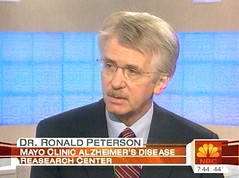David Glickman, our conference keynote speaker, said everyone at WHPRMS should implement three things. I don’t know whether that’s ambitious enough or not. It’s better, as he said, than sticking the conference three-ring binder on the shelf as the proof of attendance.
I suggest these three, not because they are by themselves the most important, but because they are, as the conference theme says — “Sure-Bet Strategies” — gateways to continued learning that will help you hit the jackpot.
Start a blog. Go here for tips on where to find places to start one for free. Link to this blog as part of your Blogroll, leave comments, or use Trackbacks. There’s no better way to learn than by doing, so just go for it. It costs nothing except your time. And by participating in even just a few blogs that talk about issues that interest you, you’ll begin to get the feel for how blogs work, and their power. If you’re not naturally a hands-on learner, using this blog in particular, asking questions and joining the conversation, will be a way you can get tutoring from the community.
Get an RSS feed reader, or aggregator. Newsgator and Pluck are examples. Subscribe to the Lines from Lee RSS feed, so you can follow the conversation. A feed reader can help you keep track of hundreds of web sites without visiting them, multiplying what you know while trimming the time it takes to keep up on the news. Here are a few other sites where you can see examples of RSS feeds: the New York Times, Washington Post, Minneapolis Star Tribune and Mayo Clinic. You see that you can subscribe to a very specific kind of news.
Get iTunes and subscribe to some podcasts. For Immediate Release is a good twice-weekly podcast on communications and technology.
